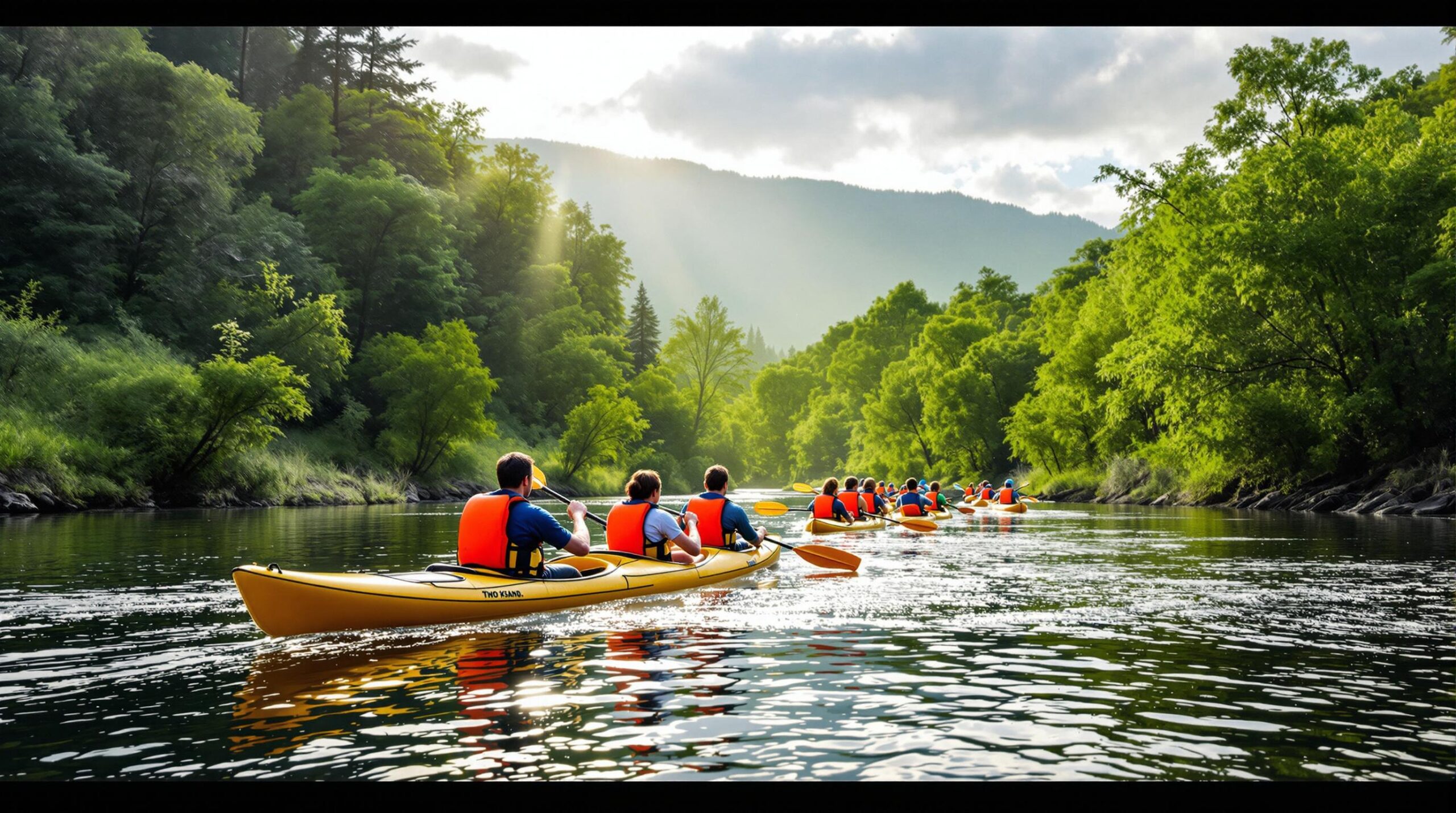Nantahala Outdoor Center is preparing to greet visitors again in 2025 after an extended hiatus prompted by Hurricane Helene’s destructive path in 2024. The facility, deeply rooted in Western North Carolina’s outdoor economy, has pursued significant repairs to roadways and key river put-ins. According to the center’s website, the organization anticipates a strong season once essential improvements and safety protocols are in place.
Severe storm conditions created immediate cleanup needs along riverbanks and nearby trails. Debris cleared from affected rivers included various obstructions with the potential to hinder rafting or kayaking. The official announcement notes that a safe return to scenic river runs remained the highest priority throughout the recovery.
Local communities banded together to raise more than $30,000 in donations through efforts such as the Friends Of Hot Springs NC Cocke County Relief Fund, with additional contributions from The Wesser Foundation. Public updates indicated that these funds expedited the removal of hazardous debris, the repair of heavily used river-access points, and the restoration of infrastructure for families affected by the hurricane. The contributions helped facilitate faster coordination between volunteers and professionals handling the recovery efforts.
Reopened roadways, such as Interstate 40 near Asheville, played a major role in restoring a tourism pipeline that benefits local businesses. With easier access, outfitters are once again able to connect visitors with renowned river runs. The same announcement also states that a steady flow of outdoor enthusiasts has historically strengthened the area’s economy, particularly in small towns dependent on seasonal traffic.
Outdoor service providers mention that certain rivers, including the French Broad and the Nantahala, are now returning to near-normal conditions. The Chattooga River remained fully operational during 2024 and 2025, while the Pigeon River shifted its primary put-in location and plans to revert to the original site once long-term upgrades are complete. These modifications are designed to uphold safety and smooth navigation for rafters of all skill levels.
In addition to clearing waters for paddlers, some crews addressed risks of wildfires and excessive sediment buildup following the hurricane’s aftermath. Deep-rooted vegetation and ongoing cleanups helped stabilize banks, enabling local guides to resume operations without putting participants at unnecessary risk. That same statement highlighted renewed attention to water testing, suggesting safe recreation in these areas.
Disaster-resilient infrastructure can shape future improvements beyond simple repairs. Campgrounds and rural roads adjacent to waterways can gain long-term stability by elevating common areas above flood levels, reinforcing road materials, and maintaining adequate drainage. Backup power systems also mitigate the consequences of sudden outages, allowing businesses to keep guests informed and comfortable in emergency scenarios.
Frequent communication with guests has been pivotal for restoring traveler confidence after the storm. Timely updates about closures, routing changes, or alternate parking spots help visitors witness ongoing recovery progress firsthand. This form of consistent outreach encourages people to consider the region for their next adventure.
Collaborative campaigns that highlight newly repaired river access points and revived trails can also spark renewed interest. By integrating group discounts or localized event tie-ins, managers of outdoor facilities can foster a rebounding tourism sector while spotlighting the region’s comeback. Such initiatives reflect broader efforts to unify stakeholders as post-hurricane improvements continue.
Nantahala Outdoor Center’s progress stands as a prominent sign of cooperation among nonprofits, private donors, and government resources. Returning rafters and kayakers support Western North Carolina’s rafting corridor by booking trips that boost family-owned lodging and guide services. Each excursion underscores the collective resolve to rebuild and restore everyday routines.
Continued awareness of storm preparedness and climate-conscious building practices may diminish the likelihood of future operational interruptions. Reopened interstate routes and cleared river passages showcase the benefits of targeted repairs that enhance resiliency. These examples may serve as a model for campgrounds and RV parks planning to protect visitor access amid extreme weather events.
Local businesses report that tickets and reservations have started to pick up, with many expressing hope that renewed tourism will invigorate the economy once again. In its official notice, Nantahala Outdoor Center indicates that guests returning to the water in 2025 can expect safer conditions, supported by a spirit of unity that has kept communities working toward the same goal: a full revival of adventure opportunities.
Outdoor recreation facilities located near major waterways can reinforce stability by applying mitigation measures learned from such recovery efforts. Elevating utility hookups and common areas above potential flood levels, repairing rural roads with weather-resistant materials, and maintaining proper water drainage help reduce storm damage and site downtime. Backup power systems, along with clearly displayed emergency signage, ensure more consistent operations if disruptions occur. Targeted fixes like clearing river debris and reopening crucial routes can serve as a blueprint for any campground or RV park seeking to protect visitor access in extreme weather.
Informed travelers are also more likely to return soon after a natural disaster when property owners engage in transparent communication. Digital platforms that share real-time route conditions, updated schedules, and newly restored amenities can reassure both loyal and first-time visitors. Agencies and nonprofit groups involved in broader recovery initiatives often collaborate with local businesses to create package deals that highlight collective renaissance efforts. By adopting these methods, campgrounds and other outdoor destinations can show their role in promoting regional resurgence and encourage visitors to participate in the comeback story.


